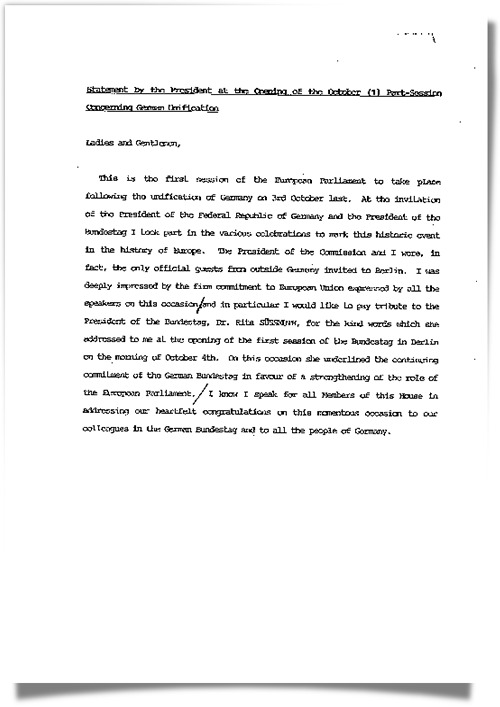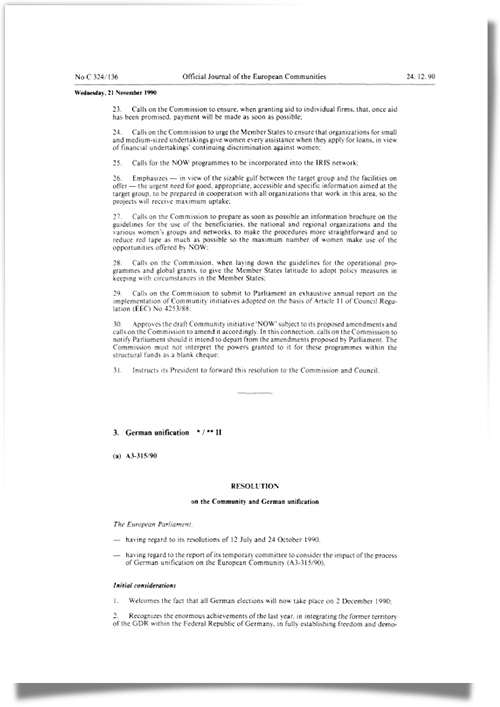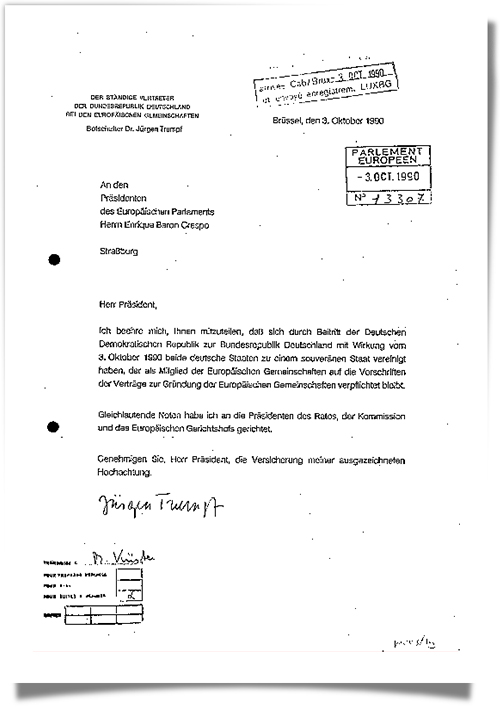Enrique Barón Crespo took office as President at a pivotal period in Europe’s history. 1989 saw the protest movements in the countries to the east of the Iron Curtain gain ground quickly, and on 9 November 1989, East Germans toppled Berlin’s ‘wall of shame’.
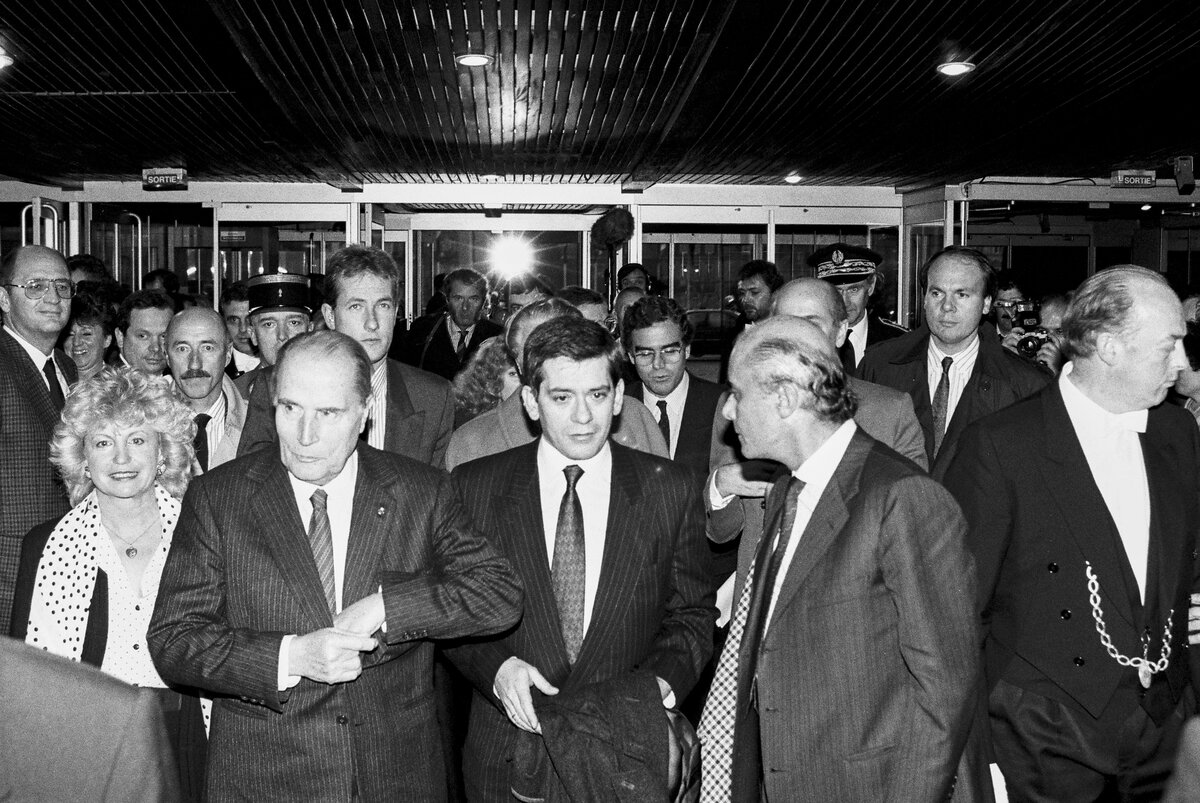 Arrival of François Mitterrand, President of France and President-in-Office of the European Council for the Formal Sitting on the Situation in Eastern Europe after the Fall of the Berlin Wall at the European Parliament in Strasbourg © European Communities, 1989
Arrival of François Mitterrand, President of France and President-in-Office of the European Council for the Formal Sitting on the Situation in Eastern Europe after the Fall of the Berlin Wall at the European Parliament in Strasbourg © European Communities, 1989
The fall of the Wall signified the beginning of the end of the Cold War and the ideological division of Europe, making it possible for European countries to be joined by a set of shared values.
The new European Parliament, elected just a few months previously, had to address this situation and its most crucial aspect, German reunification. Parliament actively advocated and supported reunification: MEPs spoke out overwhelmingly in favour of it, and of a solidarity that would help people put memories of the past behind them.
Enrique Barón Crespo said of this unexpected turn of events:
“I remember hearing the news in a telephone call from a journalist during an official visit to Italy. My first reaction was to ask him whether the wall had fallen physically or only symbolically. At the time, he couldn’t really answer me. But history did.”
From 'L'Europe à l'aube du millénaire', Enrique Barón Crespo (Paris, 1996)
Parliament’s President lost no time in reacting to the fall of the Berlin Wall. He invited François Mitterrand, President-in-Office of the Council, and the German Chancellor Helmut Kohl to address the Members of the European Parliament at the plenary of 22 November 1989. This sent out a very powerful political message. The debate culminated in the adoption by a massive majority (only two votes against) of a resolution recognising the right of the people of the GDR to self-determination and calling strongly for a rapid response from the European Community in the form of aid and cooperation (link to the resolution - PDF).
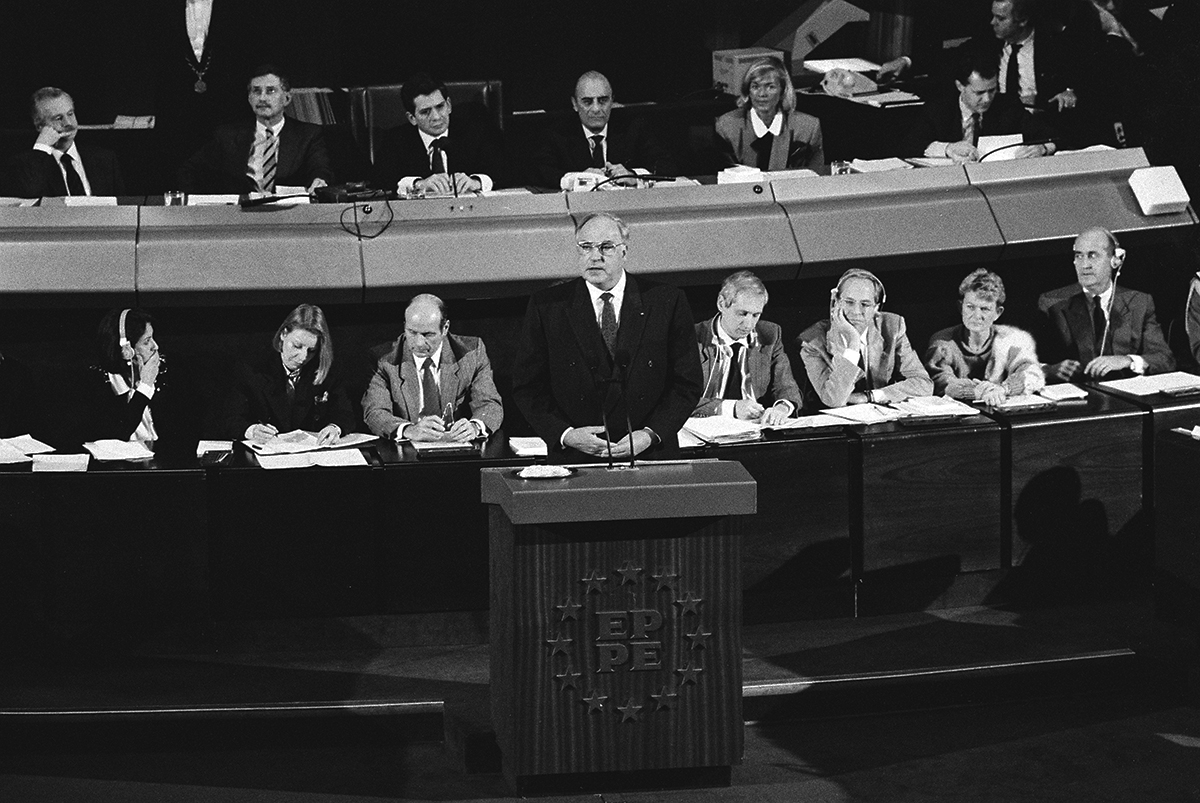 Address by Helmut Kohl, German Chancellor in Formal Sitting on the Situation in Eastern Europe after the Fall of the Berlin Wall at the European Parliament in Strasbourg © European Communities, 1989
Address by Helmut Kohl, German Chancellor in Formal Sitting on the Situation in Eastern Europe after the Fall of the Berlin Wall at the European Parliament in Strasbourg © European Communities, 1989
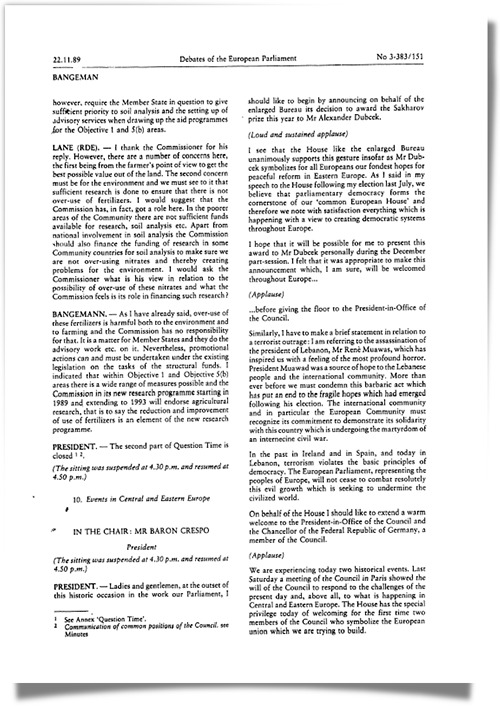
In January 1990, the European Parliament set up a temporary committee to monitor Germany’s unification process. This move was supported by the various political parties, taking their lead from James Elles MEP, who had urged Enrique Barón Crespo to set up just such a committee on 4 December 1989:
“Events in Central and Eastern Europe are unfolding in a remarkable and unpredictable manner. Countries are progressing towards democracy at varying speeds and are looking for the quickest and most effective way to encourage their economies to become more market-oriented...not only are a number of Parliamentary Committees involved in giving their views [...] The Parliamentary delegations to Central and Eastern European countries are also involved [...] It is vital that these discussions and contacts be coordinated in an appropriate way within the Parliament”
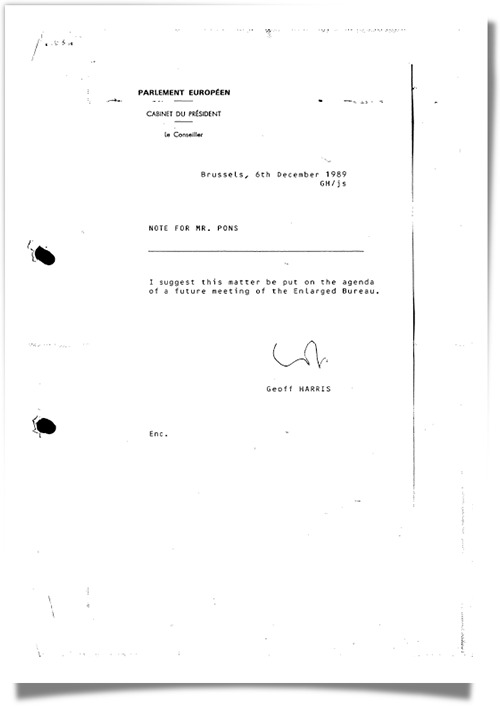 Correspondence: A letter from MEP James Elles to President Enrique Barón Crespo on the establishment of a temporary committee on the events in central Europe (Download the letter here - PDF)
Correspondence: A letter from MEP James Elles to President Enrique Barón Crespo on the establishment of a temporary committee on the events in central Europe (Download the letter here - PDF)
The invitation to represent the European Parliament at the first celebration of the unification of Germany in the German Parliament on 3 October 1990 was another high point in Enrique Barón Crespo’s term of office. He subsequently spoke about that highly symbolic and political event at a European Parliament part-session:
“This is the first session of the European Parliament to take place following the unification of Germany on 3rd October last...[the President of the Bundestag has] underlined the continuing commitment of the German Bundestag in favour of a strengthening of the role of the European Parliament.”
